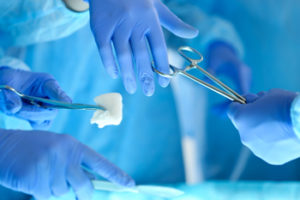New guidelines published by CDC
 The Centers for Disease Control and Prevention recently published new and updated evidence-based recommendations for the prevention of surgical site infections.
The Centers for Disease Control and Prevention recently published new and updated evidence-based recommendations for the prevention of surgical site infections.
In 2006, approximately 46 million surgical procedures were performed at U.S. inpatient hospitals, and 32 million at freestanding facilities, reports the CDC.
Between 2006 and 2009, surgical site infections – that is, infections of the incision or organ or space that occur after surgery – complicated approximately 1.9 percent of surgical procedures in the United States. However, that number is likely to be underestimated, given that approximately 50 percent of such infections become evident after discharge, says CDC.
Estimated mean attributable costs range from $10,443 (expressed in 2005 U.S. dollars) to $25,546 (in 2002 U.S. dollars). Costs can exceed $90,000 per infection when the infection involves a prosthetic joint implant or an antimicrobial-resistant organism.
Findings
The new recommendations include:
- Before surgery, patients should shower or bathe with soap (antimicrobial or nonantimicrobial) or an antiseptic agent on at least the night before the operative day.
- Antimicrobial prophylaxis should be administered only when indicated based on published clinical practice guidelines and timed such that a bactericidal concentration of the agents is established in the serum and tissues when the incision is made.
- In cesarean section procedures, antimicrobial prophylaxis should be administered before skin incision.
- Skin preparation in the operating room should be performed using an alcohol-based agent unless contraindicated.
- For clean and clean-contaminated procedures, additional prophylactic antimicrobial agent doses should not be administered after the surgical incision is closed in the operating room, even in the presence of a drain.
- Topical antimicrobial agents should not be applied to the surgical incision.
- During surgery, glycemic control should be implemented using blood glucose target levels less than 200 mg/dL, and normothermia should be maintained in all patients.
- Increased fraction of inspired oxygen should be administered during surgery and after extubation in the immediate postoperative period for patients with normal pulmonary function undergoing general anesthesia with endotracheal intubation.
- Transfusion of blood products should not be withheld from surgical patients as a means to prevent SSI.
For more information, go to Centers for Disease Control and Prevention Guideline for the Prevention of Surgical Site Infection, 2017, http://jamanetwork.com/journals/jamasurgery/fullarticle/2623725
